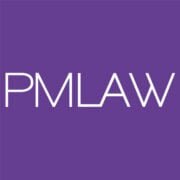Best Discrimination Lawyers in São Bernardo do Campo
Share your needs with us, get contacted by law firms.
Free. Takes 2 min.
List of the best lawyers in São Bernardo do Campo, Brazil
About Discrimination Law in São Bernardo do Campo, Brazil
Discrimination in São Bernardo do Campo, as in the rest of Brazil, refers to unfair or unequal treatment of individuals based on characteristics such as race, gender, age, religion, disability, sexual orientation, and other protected attributes. Discrimination can occur in various settings, including workplaces, schools, public establishments, health care facilities, housing, and more. Brazilian law seeks to promote equality and protect against discriminatory practices. In São Bernardo do Campo, local authorities also work to enforce these protections, following federal norms and in some cases creating additional measures to ensure inclusivity and respect for diversity.
Why You May Need a Lawyer
People may require legal assistance for discrimination issues in several common situations. For instance, if you believe you have been denied employment, promotion, or fair treatment at work based on your personal attributes, a lawyer can help determine if your rights were violated. Similarly, discrimination may occur in educational settings, when accessing public services, or during interactions with government agencies. Legal guidance is crucial if you experience discriminatory actions, need to file a complaint, or are seeking compensation or reinstatement. A lawyer will help you understand your rights, gather necessary evidence, navigate local procedures, and represent your interest before authorities or in court.
Local Laws Overview
São Bernardo do Campo adheres to Brazil’s anti-discrimination laws, mainly outlined in the Federal Constitution, the Labor Laws (CLT), and several federal statutes such as Law No. 7.716/1989 (which punishes crimes resulting from prejudice of race or color), and Law No. 9.029/1995 (which prohibits discriminatory practices in employment). The city administration enforces compliance and has municipal programs focused on racial equality and human rights. In employment cases, the Labor Courts (Justiça do Trabalho) are the typical venue for disputes. Local laws may also call for awareness campaigns, support centers for victims, and channels for administrative complaints, improving access to justice for residents.
Frequently Asked Questions
What is considered discrimination under Brazilian law?
Discrimination is any distinction, exclusion, restriction, or preference that negatively affects the rights of individuals based on race, color, sex, age, religion, nationality, disability, sexual orientation, or other protected attributes. Discriminatory acts can take many forms, including verbal abuse, denial of access, or unfair treatment in hiring, promotion, education, or services.
What should I do if I experience discrimination in São Bernardo do Campo?
You should document the incident, collect evidence such as messages or witness statements, and report the behavior to the relevant body. Depending on the case, you can make a complaint to your employer, a municipal ombudsman, the Public Ministry, or proceed directly with legal action through a lawyer.
Can I face retaliation for reporting discrimination?
Retaliation for reporting discrimination is illegal. If you experience retaliatory actions, such as being fired, demoted, or threatened, you have the right to seek further legal remedy. São Bernardo do Campo and federal laws provide specific protection against retaliation in these situations.
Are there any public agencies that help with discrimination cases?
Yes, agencies such as the Public Defender’s Office, the Public Ministry of Labor, and municipal ombudsmen offer support. São Bernardo do Campo has local bodies dedicated to equality, human rights commissions, and specialized centers that provide guidance and receive complaints.
Is discrimination in public places also illegal?
Yes, discrimination in public establishments, such as restaurants, shops, schools, or transportation, is forbidden. Victims can report incidents to the municipal authorities, state police, or pursue civil action.
What penalties can apply to those who discriminate?
Depending on the seriousness and nature of the act, penalties may include fines, civil damages, administrative sanctions, and, in criminal cases, imprisonment. Employers may also be required to reinstate employees or issue apologies.
Can discrimination cases be settled outside court?
Yes, many cases are resolved through mediation or settlement agreements, particularly in employment matters. A lawyer can help negotiate these settlements and ensure your rights are protected.
How long does a typical discrimination case take?
The duration varies depending on complexity, the evidence provided, and whether the case is handled administratively or through the courts. Some cases are resolved in months, while others may take longer, especially if appeals are involved.
Do I need to pay to file a discrimination complaint?
Filing administrative complaints with public agencies is generally free. However, court actions may involve fees, unless you qualify for free legal aid, which is available for low-income individuals in Brazil.
Is it possible to remain anonymous when filing a complaint?
In general, complaints can be filed confidentially through certain channels such as ombudsman offices. However, for legal proceedings and effective defense, your identity will typically become known to the other parties involved.
Additional Resources
There are several resources available for people seeking help with discrimination issues in São Bernardo do Campo. Consider reaching out to:
- The Municipal Human Rights Department (Secretaria Municipal de Direitos Humanos)
- The Public Defender’s Office of São Bernardo do Campo (Defensoria Pública)
- The Labor Public Prosecutor’s Office (Ministério Público do Trabalho)
- Ombudsman services (Ouvidoria) within city departments
- Non-governmental organizations focused on equality and anti-discrimination
- Local Bar Association (OAB) and its Human Rights Commission
These organizations offer guidance, legal orientation, psychological support, and support in filing complaints or pursuing legal action.
Next Steps
If you believe you have experienced discrimination in São Bernardo do Campo, start by documenting what happened, including dates, descriptions, and any witnesses. Reach out to one of the resources or agencies listed above for initial guidance, or consult directly with a lawyer specializing in discrimination or labor law. If you have low income, request free legal aid through the Public Defender’s Office. A lawyer will help you decide the best course of action, whether it is administrative complaint, negotiation, or taking your case to court. Do not delay in seeking help, as there may be legal deadlines for filing complaints or starting lawsuits. Protect your rights by acting promptly and using the support available in your community.
Lawzana helps you find the best lawyers and law firms in São Bernardo do Campo through a curated and pre-screened list of qualified legal professionals. Our platform offers rankings and detailed profiles of attorneys and law firms, allowing you to compare based on practice areas, including Discrimination, experience, and client feedback.
Each profile includes a description of the firm's areas of practice, client reviews, team members and partners, year of establishment, spoken languages, office locations, contact information, social media presence, and any published articles or resources. Most firms on our platform speak English and are experienced in both local and international legal matters.
Get a quote from top-rated law firms in São Bernardo do Campo, Brazil — quickly, securely, and without unnecessary hassle.
Disclaimer:
The information provided on this page is for general informational purposes only and does not constitute legal advice. While we strive to ensure the accuracy and relevance of the content, legal information may change over time, and interpretations of the law can vary. You should always consult with a qualified legal professional for advice specific to your situation.
We disclaim all liability for actions taken or not taken based on the content of this page. If you believe any information is incorrect or outdated, please contact us, and we will review and update it where appropriate.










